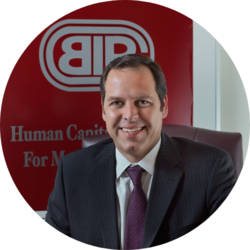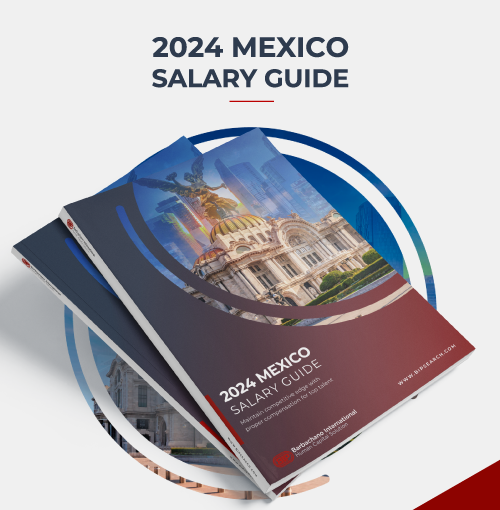
Beyond Times of Crisis: Defining Your Hiring Strategy
Hiring during times of crisis may seem like an oxymoron. During a crisis, most people hunker down and try to maintain the status quo. C-suite executives become ultra-conservative, freezing budgets and hiring alike.
However, a crisis is rarely a short-term occurrence. As President John F. Kennedy pointed out, “In the Chinese language, the word ‘crisis’ is composed of two characters, one representing danger and the other, opportunity.” Finding the window of opportunity in any crisis can help you position your organization for long-term growth.
Despite the challenges of dealing with today’s current crisis — the global pandemic — maintaining a strategic, effective, and objective perspective toward hiring is key to weathering crises. Take a look at some of the crucial elements that allow you to take your hiring strategy through a crisis and beyond.
Take a Long-Range Point of View
In the middle of a crisis situation, it’s all too easy to view hiring decisions as emergencies. However, this is the time to take a long-range point of view in your hiring strategy.
Even when hiring during times of crisis, each hire you make has long-term consequences. If you rush to fill a position, especially a key slot, without strategic consideration of the values you need, you may be creating a drag on your organization in the future.
The fundamentals of your hiring strategy and process should remain steady even during a crisis. In this situation, the weak point may be hiring managers who see the short-term dangers looming up in front of them and push the long-term view to the side accordingly.
To avoid this, plan for talent flow at all times, with one eye always on your in-house talent pool and the other on your anticipated hiring needs for the next three to five years. Which leaders on your team are most likely to make shifts during that time frame? In what areas do you anticipate growth, and where will you find the leaders for those areas? How can you incorporate diversity into your hiring strategy?
As detailed in Harvard Business Review, Intuit has set the standard for this type of planning, building a database that incorporates data on anticipated attrition, internal mobility, business unit growth, and recruiting yield to make predictions and create an overall hiring strategy. Because Intuit now predicts 90% of its hiring needs successfully, it can make smart decisions even in times of crisis.
Look for Key Hiring Opportunities
Times of crisis do indeed bring opportunities, and that’s especially true when it comes to hiring. The people with the talent needed to fill the key roles, such as C-suite positions and key niche roles demanding specialized talent and experience, are rare — but they often become more available during downturns or emergencies.
Perhaps their own organizations are faltering and cutting back. Perhaps the crisis has made them aware of the need for a change, or even of their own value. Whatever the motivation, you may find a path to recruiting highly skilled professionals during times of crisis that might otherwise be blocked.
While you may have to be especially persuasive to allay the concerns of high-end job candidates regarding the wisdom of making a move during a precarious time, you have the opportunity to speak directly to candidates’ needs and motivations. Do your research to show them you aren’t wasting their time, and be open to fresh takes on how a candidate might approach the positions you want to fill.
Expand the scope of your search to look at the so-called inside-outsiders, those internal candidates who aren’t necessarily in the line of succession. As well, you should pay attention to people outside your company who know your organization well, including advisors, suppliers, and former employees. You may even want to consider remarkable candidates coming from other industries because of the fresh perspectives and skill sets they bring. The rule of “meeting a dozen” is key to not wasting time, especially when a crisis is tugging you away from your long-term hiring strategy: stop recruiting and start interviewing when you have about 12 high-quality candidates to consider.
During a crisis, of course, you also have to keep an eye on the stars within your organization, who may be using the situation to their own advantage by looking elsewhere. If you’ve maintained a long-term approach to hiring overall, you should already know who these potential losses to your company are. Decide what steps you want to take to retain them, bearing in mind, as HBR points out, that “in business, the only viable strategy is to recruit good people, develop them, and retain as many of the stars as possible.”
Stay Flexible and Ready to Pivot
Times of crisis are the ultimate disruptors. If you have a strong hiring strategy in place, you should be able to rely on it as a foundation for your decision-making.
You may, however, need to flex in terms of how you recruit candidates and how you conduct assessments and interviews. For example, you may have to interview candidates remotely rather than enjoying a face-to-face interaction. If you need to fill a key slot immediately — as some hospitals and major health care providers have had to do during the global pandemic — you may need to find a way to fast-track your process without forgoing any of the deliberation and due process required.
This time of flexibility allows you to assess candidates in ways that don’t always surface normally. Hiring during times of crisis brings out the qualities of resilience and adaptability in job candidates. It lets you see how well candidates respond to pressure, ambiguity, and adversity. When you bring in key team members who handle change well, you’re likely to prepare your organization for the next crisis — or the next opportunity.
Hiring during times of crisis involves, at its heart, the same sound strategy you use during calmer times. Understanding the long-term needs of your organization allows you the flexibility you need to pivot during a crisis while still remaining true to your goals and values.

By Fernando Ortiz-Barbachano
President and CEO of Barbachano International (BIP),
The Human Capital Solutions leader in Mexico, Latin America, and the USA, offering high-impact executive search, executive coaching, and outplacement.

About Barbachano International
Barbachano International (BIP) is the premier executive search and leadership advisory firm in the Americas (USA, Mexico, Latin America, & Canada) with a focus on diversity and multicultural target markets. Outplacement and Executive Coaching services are provided by our sister allied company Challenger Gray & Christmas. Since 1992, BIP and its affiliates have impacted the profitability of over 50% of Fortune 500 Companies. BIP has been recognized by Forbes as Americas’ Best Executive Search Firms and currently ranks #27 and #3 on the West Coast. Headquartered in San Diego, California with satellite offices in Florida and Mexico. As member-owners of NPAworldwide Recruitment Network, we are supported by partner offices in over 50 countries.


